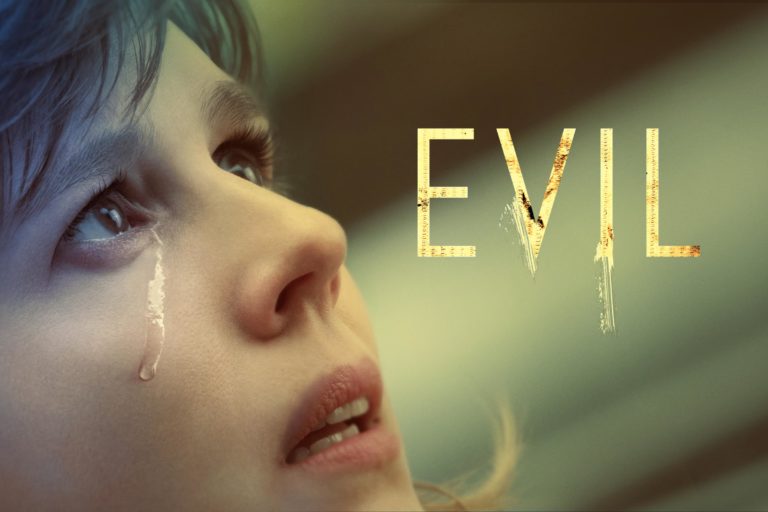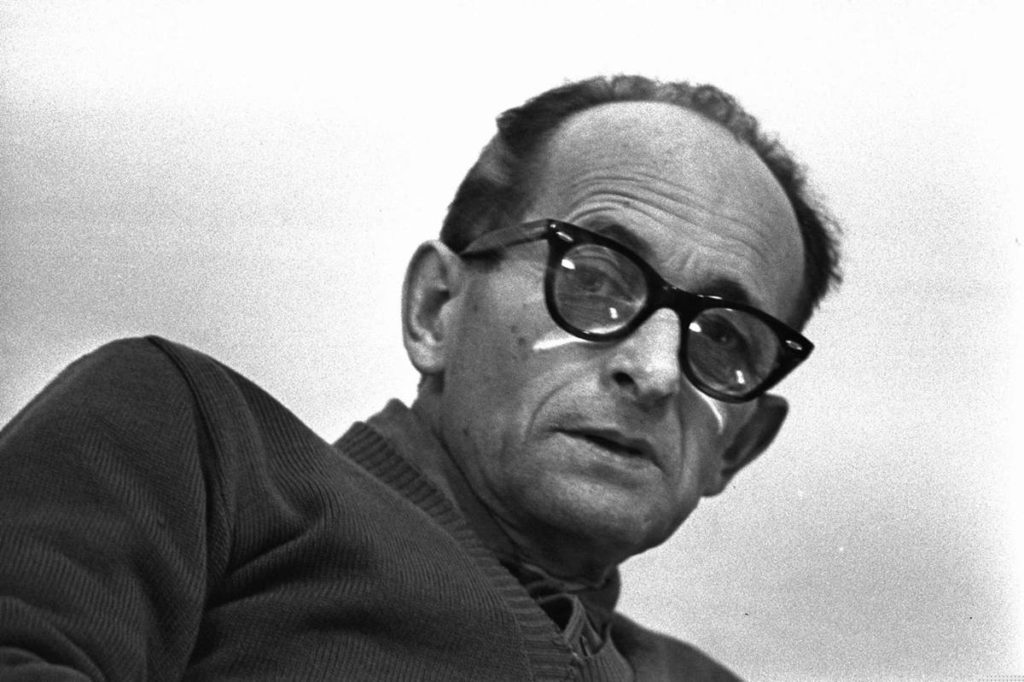
A headline at The Drudge Report made an absurd claim: “Mankind’s belief in evil ’caused by disease’.”
The headline of the actual article in the UK Daily Star was slightly more ridiculous–it prefaced the unbelievable claim with “Scientists discover…” Both headlines are nothing more than click-bait; the substance of the article doesn’t come remotely close to justifying the claims of that sensational headline. In fact. if you actually bother to read the article found at the Daily Star claiming that “Scientists discover mankind’s belief in evil caused by disease” what you, the reader, will discover is that scientists haven’t said they have discovered any such thing. The only thing Brock Bastian and his team of researchers from the University of Melbourne have actually said is that there seems to be some sort of correlation between geographic locations where diseases were known to be more common and a cultural belief in the existence of demons and evil spirits.
Once you get into the real “substance” of the article, you’ll find the bold declarations have been considerably watered down by the use of all sorts of conditional words…the backpedaling begins with the article’s subtitle that says “A potentially-massive breakthrough in our understanding of evil may have been found.” Well, which is it? Has this amazing breakthrough been found, or hasn’t it? You won’t know for sure unless you read beyond the headline. The headline itself is nothing more than a hook to lure readers into learning about what amounts to simply a secular version of a false cause fallacy based on a risky assumption, if not a fatally flawed one: the belief that evil doesn’t exist as an external force that adversely affects mankind.
The moral of the story? Don’t believe everything you read, and especially don’t believe anything an alleged professional journalist has written without a fair degree of skepticism and some vigorous fact-checking. The truth is, if you told that same team of researchers that millions of people believe in a supernatural God (the Cause) because evidence for the Big Bang proves the universe was created from nothing (the Effect), they’d be the first ones to chirp that correlation does not equal causation–in other words, any scientist making such a claim about evil has committed the false cause fallacy they would gleefully accuse a theist of committing when it comes to the origin of our universe. While my initial reaction to the article was something bordering contempt, a little further research into the work of Dr. Bastian has left me unconvinced that he’s some sort of a villain out to mislead the human race on the true origin of evil.
Coincidentally, Evil is the title of an excellent CBS drama that has rapidly become one of the few shows I watch regularly on television. The lead character is a skeptical psychologist working on a team of investigators employed by the Catholic church to look into any evidence of supernatural claims such as miracles or demonic possessions so that Church authorities will make an informed decision before taking any official action. The “default” position to any alleged phenomenon is natural skepticism, including the Church authorities. Everyone involved with an investigation begins by assuming that the claim of demonic possession is actually a psychiatric illness, and that every claim of supernatural phenomena actually has a natural explanation. It is only by the process of elimination, after all the “natural” explanations have failed, that the Church even begins to entertain the idea of the supernatural. It is still only the first season, but thus far the show has done a good job of leaving some room for doubt even after an investigation has been concluded. Evil wisely stops short of offering any sort of proof that demonic influences are real and even debunks some the most unbelievable phenomena (George the demon) while offering a far more subtle but realistic presentation of evil in the characters of Leland Townsend and the strange little girl who showed up Halloween night and terrorized the protagonist’s children in a cemetery, of all places.

Philosopher and political theorist Hannah Arendt wrote the famous essay Eichmann in Jerusalem: A Report on the Banality of Evil, which tried to explain how a guy who looked a bit like Woody Allen (or maybe Peter Sellers dressed as Dr. Strangelove) could have been one of the central planners responsible for the logistics of the Holocaust, in which six million Jews were rounded up and murdered in an insane attempt to rid Europe of every Jewish man, woman, and child. Ms. Arendt surely wasn’t trying to say that genocide is an ordinary or mundane form of evil. Instead she seemed to be making the point that Eichmann didn’t look like the amoral monster he was. John Wayne Gacy was a serial killer who liked to dress up in a clown costume. Ted Bundy was considered handsome by many.
If Evil was easy to recognize or understand, we wouldn’t have as much to fear.
By the time he went on trial, Eichmann looked more like a bookkeeper than a mass murderer. His pathetic excuse that he was just a soldier following orders was just a ludicrous attempt to absolve himself of any responsibility for his own actions that directly led to the organized murder of six million people. Eichmann deserved to be hanged for his role in the Holocaust, and he was. Was he mentally ill? If so, what about Goebbels, Goring, Himmler, and all the other Nazis? The question we must ask ourselves is this: does evil actually exist as an entity or a force external to the human mind, or does evil only exist in the hearts of men (and women, men who think they are women, tall flirty pansexual wood sprites, and the other 57 or so alleged variations of sexuality?)
While it might be tempting to believe that humans merely invented the concept of evil in order to rationalize the impact of physical and mental diseases upon the human condition, does that really explain the Holocaust, the Holomodor, or the Killing Fields? Is everyone who commits murder insane, or have a brain tumor? Personally, I don’t think so. Some people kill purely for the joy of taking a life because they are sadists and find pleasure in the pain of others. Anyone (like my wife and I, for example) who has spent time and energy volunteering with animal rescue groups will inevitably have a few “war” stories about the horrific abuse of innocent creatures by animals would ordinarily describe as human beings like us but exhibit no signs of humanity in their behavior. There are a lot of sick people out there, but is every violent person mentally ill? And what about “lesser” crimes such as arson, rape, or robbery?
People don’t commit crimes only because they have brain tumors or other mental illnesses. Sometimes health is a contributing factor, but most of the time it isn’t–committing an evil deed is simply a bad choice made using free will. Most thieves steal property from strangers for the simple reason of wanting something they don’t own and not wanting to pay the cost. Sure, occasionally people try to steal because of desperation or extreme need, but most of the time it’s just because they want some material possession that belongs to someone else without having to pay for it. Theft may not be the same category of evil as murder, but it’s still evil–there is a reason that avarice and greed were listed among the seven deadly sins. People lie, cheat, steal, covet…we certainly aren’t saints by our nature. In fact, every human being on this planet has the capacity to perpetrate acts of extreme evil.
So far I’ve only mentioned evil actions that are obviously illegal; but what about other forms of evil? What about biological male athletes claiming to be transgender in order to compete in women’s sports? What about forcing Christians to bake wedding cakes for gay couples or risk losing their business and only source of income? In this modern society, the people screaming loudest with demands for tolerance are often the least tolerant. People who sincerely believe they are marching in opposition to fascism “proactively” bizarrely use violence to silence and intimidate their critics with tactics that would make Hitler’s own brownshirt-wearing thugs proud.
Interestingly enough, Dr. Bastian presented a fascinating TED lecture in which he explains why we need to feel pain to appreciate pleasure. I’ve often tried to explain the “need” for evil in this world as a function of free will, to give humans a choice between right and wrong. Without pain, pleasure is a meaningless experience. Without sorrow, we can’t appreciate true joy. If God did not allow evil to exist in this world, we would essentially become slaves, without the opportunity to choose good over evil.
It would be easier to believe that evil only exists in the human heart if only evil existed. Fortunately there are ubiquitous examples of good to balance the evil we observe every day. Whenever natural disaster strikes, thousands if not millions of people typically donate money and supplies to those suffering and in need. Strangers “pay it forward” and commit random acts of kindness, too. Pleasure and pain. Joy and sorrow. Good and evil. All resulting from our human exercise of free will.
Evil is not a human invention. However, it is one of the potential results of human behavior. The question is, does evil only exist because humans exist, or does evil come in other forms? One of the great lines in cinema history came from the movie The Usual Suspects: “The greatest trick the Devil ever pulled was convincing the world that he didn’t exist.”
Evil exists in this world, to be sure. Our biggest problem at the moment is that modern society simultaneously denies the unpleasant truth while often glorifying the evil deeds of men.


“Tall flirty pansexual wood sprites”
John…what an absolutely terrific visual! That line elicited a giggle from me as I read, yet another one of your thought producing articles.
In 2008, I had an opportunity to visit the Wayfafer Chapel in California. In reading Helen Keller’s book I was vaguely familiar with the name of Swedenborg. While there I had, what I consider, an experience I wasn’t expecting…I was overcome by emotion. Crying! Upon returning home I began researching Swedenborg and found Morning Star Chapel, in Milton Ga. Over the next 7-8 years I’d drive from Monroe Ga, to Milton for Sunday services. (Thankfully I live closer now) If a church were rated by the number af attendees we would have the lowest rating but yet I continue to attend because I hear deeper truths, such as the following:
“The origin of evil is the abuse of the abilities proper to us called rationality and freedom. By rationality, I mean the ability to discern what is true and therefore what is false, and to discern what is good and therefore what is evil. By freedom I mean the ability freely to think, intend, and to do such things.” (Dive Love and Wisdom) Emanuel Swedenborg
I’ve never given this thought until now but finding the writings of Swedenborg I feel challenged to think, examine and experience truths and falsities and ultimately use my free will to make choices. Much like reading other people’s writings, such as yours. Nearly every article you write, unless it’s sports related……makes me think. So keep up the good work!
Obviously, you refer to Emanuel Swedenborg. I was not familiar with Morningstar Chapel in Milton. I will look them up.
Thanks!
https://www.southernprose.com/2017/03/01/the-polymath-emanuel-swedenborg/
Ah, the question of resident evil. Did God (of the old testament) create Evil? Tomes have been written and great masses of arguments devoted to both sides of that question. Indeed, much of the debate on Free Will centers on the possible existence of evil as a causation or need for free will. And in the last twenty years or so, a number of books on consciousness, biological based morality, and philosophy have debated whether humans actually possess free will. The answers depend on how one asks the questions.
Now we could cite various psychological phenomena such as locus of control in the individual as to susceptibility of an individuality to take on evil behavior. On the other hand the personality studies can point to a biological readiness towards the dark side of live. Then there is the nurture argument that evil people are made, not born. The fact of the matter is that causation is not easily determined. Was Ted Bundy born a psychopath? The answer is indeterminate. Behavior is a continuum, not a specific position on an x and y axis. Yes, some individuals are born with the genetic variability towards alcoholism and yet many never succumb to that behavior (I am not one who believes there is evidence for that disorder to be a disease), free will has as much to do with the development of habit as nature, if not more so.
I am not a Christian, so I have no belief in a “GOD” as defined by general Christian tenets. I do believe in a spiritual presence, and one that does not place quick sand and boulders or landmines in my path towards spirituality So I reject the need for a resident Evil out of hand as unnecessary. As I read the old testament, the purpose of the devil or Lucifer was to turn mankind’s face away from God, away from the truth, not to turn man into a psychopath.
With all due respect, I wouldn’t agree with the suggestion that God created evil. I would agree that God has created a universe and world in which evil is a potential outcome, depending on our choices via free will.
I’ve heard the arguments against free will and find even the best of them sorely lacking. The one about measuring electronic impulses that suggest our brain registers a decision prior to the body taking action as more indicative of the fact that time must elapse between having a thought and your body having the opportunity to react to it…having just played tennis earlier today, I can assure you that the brain has thoughts before the body can act upon them. The biggest problem with a deterministic world absent of free will is simple–if Ted Bundy had no choice but to murder his victims, then society would be wrong to punish him. I would further argue that a world absent of free world is a world in which we would exist literally as slaves to our DNA and environment.
Thank you for the interesting comment!